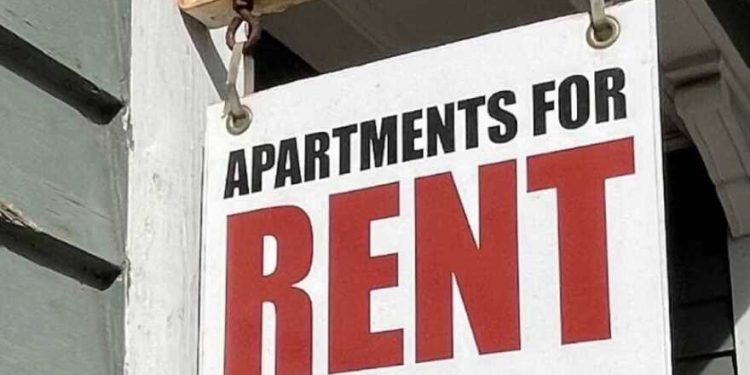Rent increases are a significant concern for tenants across the United States, and Nebraska is no exception. Understanding the legal framework governing rent increases in Nebraska can help tenants navigate their rental agreements and protect their rights. This article provides an in-depth look at Nebraska’s rent increase laws, what tenants should know in 2024, and practical advice for dealing with rent hikes.
Understanding Nebraska Rent Increase Laws
This Article Includes
General Overview
Nebraska does not have statewide rent control laws, which means landlords can increase rent without a cap as long as they follow certain legal procedures. However, specific regulations ensure that rent increases are fair and transparent.
Notice Requirements
Landlords in Nebraska must provide written notice before increasing rent. The amount of notice required varies depending on the type of rental agreement:
- Month-to-Month Tenancies: Landlords must give a 30-day written notice before the increase takes effect.
- Fixed-Term Leases: Rent cannot be increased during the term of the lease unless specified in the lease agreement. For renewal periods, the landlord must provide notice before the lease renewal.
Legal Limitations and Protections
While there is no cap on how much a landlord can increase rent, they must adhere to specific limitations:
- Non-Discriminatory Practices: Rent increases cannot be discriminatory. Landlords must comply with federal and state anti-discrimination laws, which prohibit increases based on race, color, religion, sex, disability, familial status, or national origin.
- Retaliatory Rent Increases: Nebraska law prohibits landlords from increasing rent as retaliation against tenants for exercising their legal rights, such as filing a complaint about unsafe living conditions or joining a tenants’ union.
Major Cities in Nebraska and Local Ordinances
Omaha
Omaha, the largest city in Nebraska, does not have local rent control ordinances. However, the city enforces the state’s regulations regarding notice and anti-discrimination practices.
Lincoln
Lincoln, the state capital, also follows the state’s guidelines. Rent increases must comply with the notice requirements and anti-discrimination laws.
Bellevue and Grand Island
Similar to Omaha and Lincoln, Bellevue and Grand Island do not have additional local regulations on rent increases. Landlords must follow the state’s legal framework.
Practical Advice for Tenants
Reviewing Your Lease Agreement
Understanding your lease agreement is crucial. Look for clauses related to rent increases, such as:
- Automatic Renewal Clauses: Some leases may include automatic renewal with a rent increase provision. Ensure you understand the terms before signing.
- Periodic Review Clauses: Some agreements allow for periodic rent reviews and increases.
Negotiating Rent Increases
Tenants have the right to negotiate rent increases with their landlords. Here are some tips:
- Prepare Evidence: Gather evidence of comparable rental rates in your area to support your case.
- Communicate Clearly: Discuss your concerns and reasons for opposing the increase calmly and respectfully.
- Propose Alternatives: Offer alternatives, such as a longer lease term or agreeing to handle minor maintenance tasks, in exchange for a smaller increase.
Legal Recourse for Unfair Increases
If you believe a rent increase is unfair or discriminatory, you have legal options:
- Consult Legal Aid: Organizations like Legal Aid of Nebraska can provide free legal assistance to tenants.
- File a Complaint: You can file a complaint with the Nebraska Equal Opportunity Commission if you suspect discrimination.
Case Studies and Examples
Case Study 1: Month-to-Month Tenancy in Omaha
John, a tenant in Omaha, received a 30-day notice of a rent increase from his landlord. Understanding his rights, John reviewed comparable rental rates and found that his proposed rent was significantly higher. He negotiated with his landlord and successfully reduced the increase by providing evidence of local rates and proposing a six-month lease extension.
Case Study 2: Fixed-Term Lease in Lincoln
Sarah, a tenant in Lincoln, was nearing the end of her one-year lease. Her landlord informed her of a rent increase upon renewal. Since the lease specified that rent could not increase during the term, Sarah was prepared. She negotiated the new rent for the upcoming term, agreeing to a minor increase in exchange for some minor apartment upgrades.
Resources for Tenants
Legal Assistance
- Legal Aid of Nebraska: Provides free legal help to low-income residents.
- Nebraska State Bar Association: Offers a Lawyer Referral Service to help tenants find legal representation.
Tenant Rights Organizations
- Nebraska Tenants Union: Advocates for tenant rights and provides resources and support.
- Fair Housing Center of Nebraska and Iowa: Offers assistance with housing discrimination issues.
Government Agencies
- Nebraska Department of Health and Human Services: Oversees housing standards and tenant rights.
- Nebraska Equal Opportunity Commission: Handles discrimination complaints.
Conclusion
Understanding Nebraska’s rent increase laws is essential for tenants to protect their rights and navigate rental agreements effectively. While the state does not impose rent control, the legal framework ensures transparency and fairness. By staying informed, reviewing lease agreements carefully, and knowing their rights, tenants can better manage and respond to rent increases in 2024.










